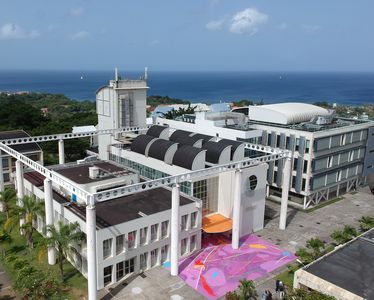Willingness of south Florida fruit growers to adopt genetically modified papaya : an ex-ante evaluation
Contenu
-
Identifiant (dcterms:identifier)
-
V16254
-
Titre (dcterms:title)
-
Willingness of south Florida fruit growers to adopt genetically modified papaya : an ex-ante evaluation
-
Titre alternatif (dcterms:alternative)
-
français
Volonté des agriculteurs du sud de la Floride d'adopter la papaye génétiquement modifié (carica papaya) : une évaluation antérieure
-
Date (dcterms:date)
-
11 juillet 2016
-
Numéro (bibo:number)
-
7
-
Résumé (dcterms:abstract)
-
Papaya ring spot virus (PRSV) has been a major factor inhibiting the expansion of papaya production in South Florida, USA. The University of Florida has developed a line of X17-2 transgenic papaya, tolerant to PRSV and suitable for commercial production. The expected yield improvement can reach 380%. Despite this, some fruit growers may be skeptical about adopting these improved GM cultivars for various reasons. Therefore, a probit model was used with data from a survey of likely producers to identify factors that could influence the adoption of the new technology. These factors include educational attainment, farm size and income from agriculture. The results suggest that a targeted education program will go a long way towards increasing the uptake of technology.
-
français
Le virus de la tache annulaire de la papaye (PRSV) a été un facteur majeur inhibant l’expansion de la production de papaye dans le sud de la Floride, aux États-Unis. L’Université de Floride a développé une lignée de papaye transgénique X17-2, tolérante au PRSV et adaptée à la production commerciale. L’amélioration attendue du rendement peut atteindre 380 %. Malgré cela, certains producteurs de fruits peuvent être sceptiques quant à l’adoption de ces cultivars GM améliorés pour diverses raisons. Par conséquent, on a utilisé un modèle probit avec les données d’une enquête auprès des producteurs probables pour déterminer les facteurs qui pourraient influer sur l’adoption de la nouvelle technologie. Ainsi, le niveau de scolarité, la taille de l’exploitation et le revenu tiré de l’agriculture comptent parmi ces facteurs. Les résultats suggèrent qu’un programme d’éducation ciblé contribuera grandement à augmenter le taux d’adoption de la technologie.
-
Conditions d'utilisation (dcterms:rights)
-
fr
CC-BY-NC-ND - Attribution - Pas d'utilisation commerciale - Pas de modification
-
Mot-clé libre (dcterms:subject)
-
Agronomie, agriculture
-
Mot-clé Thématique (dcterms:subject)
-
fr
Innovation, technologies, industries
-
Mot-clé Siècle (dcterms:temporal)
-
21
-
Type (dcterms:type)
-
fr
Colloque & conférence
-
Format (dcterms:format)
-
video/mp4
-
Plateforme source (dcterms:provenance)
-
Bibliothèque numérique Manioc
-
Public (dcterms:audience)
-
fr
Public universitaire
 Université des Antilles. Service commun de la documentation (2015-....)
Université des Antilles. Service commun de la documentation (2015-....)
 Université des Antilles
Université des Antilles
